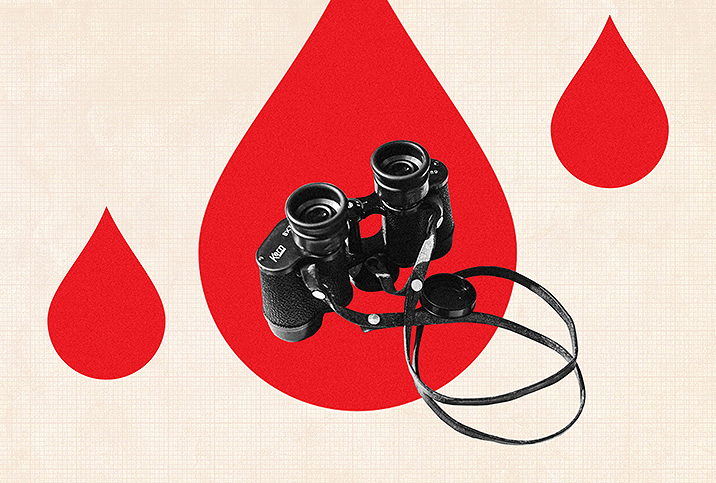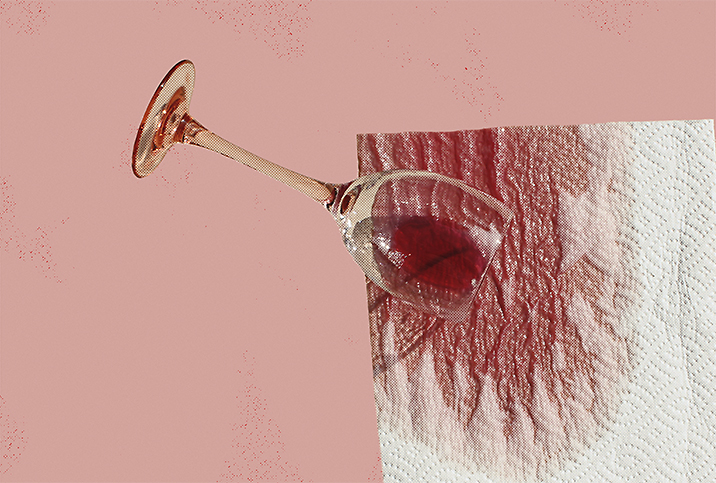Period Problems to Look Out For

After the first time, most of us are not usually excited about getting our periods—we deal with the discomfort and the inconvenience for a short spell and then we move on.
By the time we're in our late teens or 20s, our bodies regulate and we don't experience much change in the number of days, the bloating and/or cramps we experience or the volume of our flow. But when things do change unexpectedly, we need to pay attention.
The reasons our period gets out of whack sometimes can vary from stress to pregnancy to the onset of perimenopause, though health conditions like fibroids, endometriosis and even cancer can be catalysts. We need to understand what the irregularity, change in flow and pain associated with our time of the month could be telling us.
Menstrual irregularity
Typically, menstrual cycles last between 21 and 35 days, with the actual bleeding lasting somewhere between three and seven days. However, every woman is different. Comparing how many days yours lasts with a friend's won't give you the vital data you need. It's important to focus on how long your period, in particular, lasts and compare this span from month to month.
What causes irregular periods? There are many triggers. Some are emotional—for instance, being under intense stress can delay or impede your flow. Some triggers are physical. Both hypothyroidism and hyperthyroidism can knock your cycle off track, as can polycystic ovary syndrome (PCOS). Additionally, irregularity may signal the onset of perimenopause.
Heavy flow
What is the amount of blood lost during a normal menstrual cycle? Again, what's "normal" really depends on what you're used to. Some women naturally have lighter or heavier flows. Generally speaking, women lose a total of 2 to 3 tablespoons of blood over the course of their period, with some days being heavier than others. When your own period seems heavier than usual, that's when you have to monitor things. Have you had to change your tampon more often than during previous cycles? Are you passing clots larger than a quarter? You may need to make an appointment with your gynecologist to see what's going on.
The medical term for unusually heavy or prolonged periods is menorrhagia. One of the triggers for unusually heavy bleeding is if you have fibroids, which are noncancerous lumps that sometimes form in the uterus during childbearing years. Another is endometriosis, which is when the endometrium, or uterine tissue, grows outside the uterus. In addition to increasing flow, both these conditions can lead to intense pain.
Speaking of pain…
We may jest about our periods being a pain in the neck—or other parts of our anatomy—but period pain is no joke. Cramps, known less colloquially in scientific circles as dysmenorrhea, come about when the uterus contracts to squeeze out the lining when an egg isn't fertilized.
When cramps last a day or two then go away, it's not a sign of anything except that your body is doing its job. However, when cramps last longer and with more intensity, it can be a sign of something more serious, like fibroids or endometriosis. Another possible cause for women who have previously given birth, had abdominal surgery or are in their 40s or 50s is adenomyosis.
Menstrual pain is not limited to the abdominal area, and pain experienced elsewhere should always be scrutinized—for example, migraines. While an occasional headache related to hormonal flux during your period is not necessarily something to worry about, getting sharp and intense migraines, possibly caused by a drastic drop in estrogen, could signal the start of menopause.
It's worth checking on changes
Changes in your period don't always indicate a serious medical condition, but they are your body's way of telling you things may not be quite right. Whether it's a late period triggered by stress, a super-heavy flow or prolonged and extremely painful cramps, it may be time to see your doctor. Not having your period if you're sexually active and of childbearing age could mean you're pregnant; vaginal bleeding after menopause could indicate ovarian, cervical or uterine cancer. If your period has been different for a couple of cycles, get yourself checked out.




















